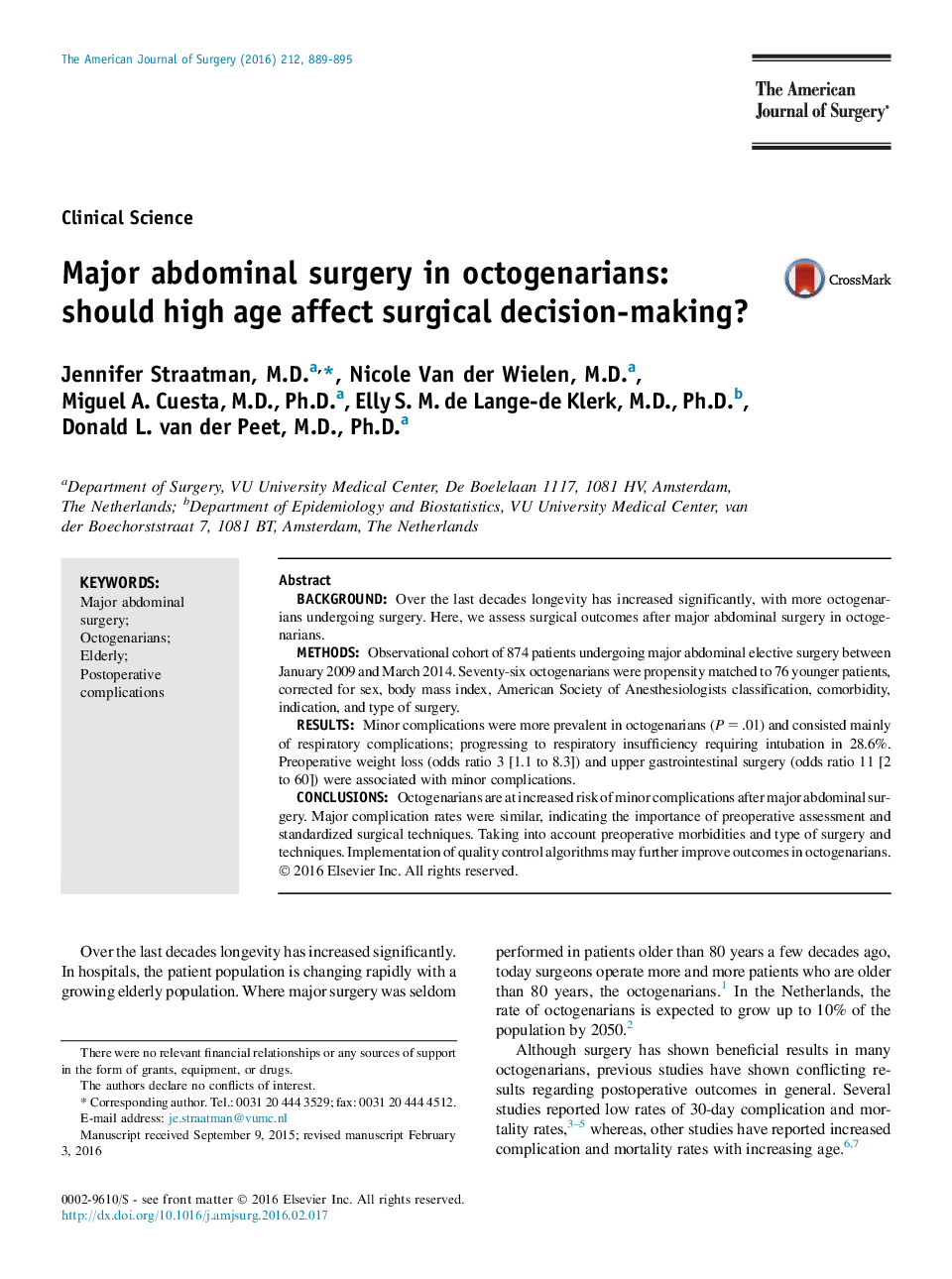| Article ID | Journal | Published Year | Pages | File Type |
|---|---|---|---|---|
| 5731418 | The American Journal of Surgery | 2016 | 7 Pages |
â¢Assessment of outcomes after major abdominal surgery in octogenarians.â¢Comparison with a propensity-matched younger cohortâ¢Correction applied for patient and surgical characteristicsâ¢Octogenarians are at increased risk of developing minor complicationsâ¢Independent predictors for complications were weight loss and Upper GI surgery
BackgroundOver the last decades longevity has increased significantly, with more octogenarians undergoing surgery. Here, we assess surgical outcomes after major abdominal surgery in octogenarians.MethodsObservational cohort of 874 patients undergoing major abdominal elective surgery between January 2009 and March 2014. Seventy-six octogenarians were propensity matched to 76 younger patients, corrected for sex, body mass index, American Society of Anesthesiologists classification, comorbidity, indication, and type of surgery.ResultsMinor complications were more prevalent in octogenarians (P = .01) and consisted mainly of respiratory complications; progressing to respiratory insufficiency requiring intubation in 28.6%. Preoperative weight loss (odds ratio 3 [1.1 to 8.3]) and upper gastrointestinal surgery (odds ratio 11 [2 to 60]) were associated with minor complications.ConclusionsOctogenarians are at increased risk of minor complications after major abdominal surgery. Major complication rates were similar, indicating the importance of preoperative assessment and standardized surgical techniques. Taking into account preoperative morbidities and type of surgery and techniques. Implementation of quality control algorithms may further improve outcomes in octogenarians.
